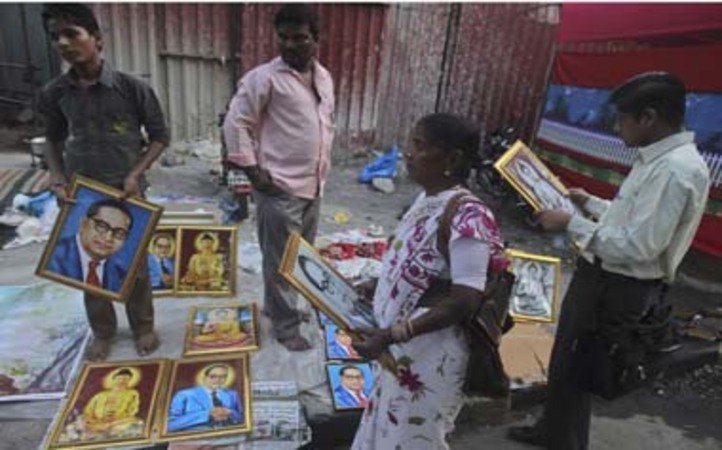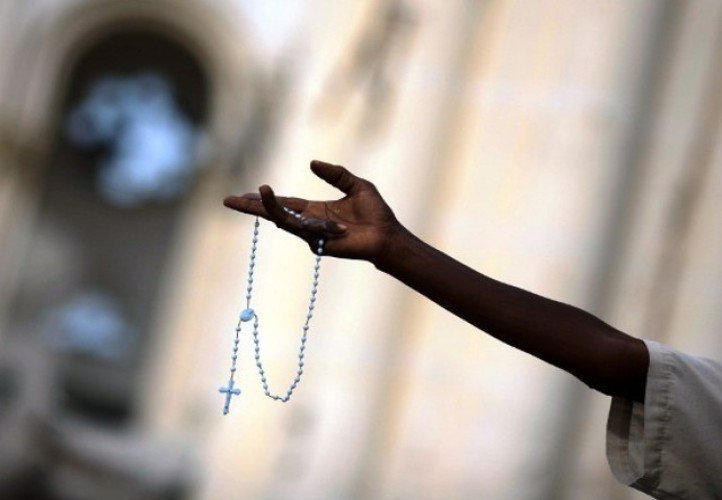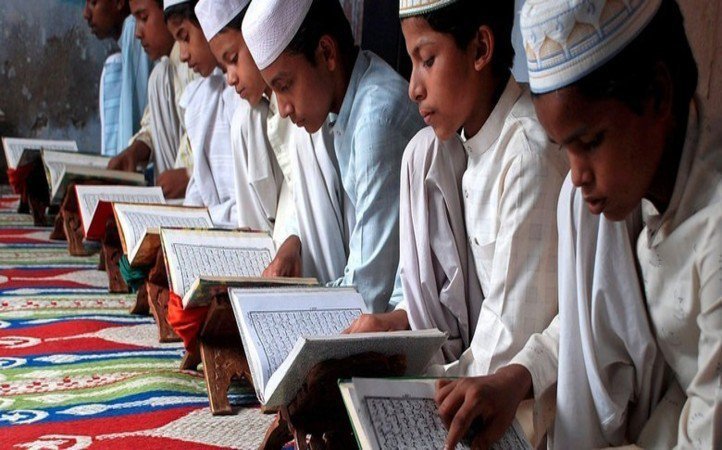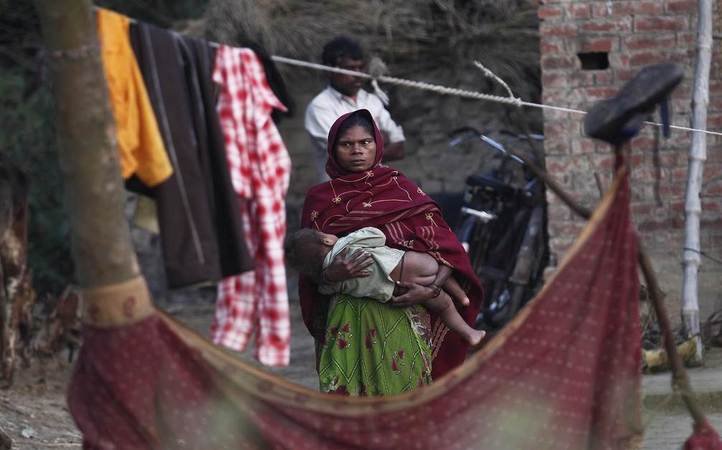On Thursday, on Dr BR Ambedkar’s 125th birth anniversary, Dalit scholar Rohith Vemula’s mother and brother converted to Buddhism.
Radhika Vemula and her elder son Naga Chaitanya Vemula have been waiting for justice from the government after Rohith committed suicide at the campus following a tiff with fellow students activists.
The two were given ‘deeksha’ at a function in Mumbai’s Dadar area, in the presence of Ambedkar’s grandson Prakash Ambedkar. They thus followed in the footsteps of Dr Ambedkar who too embraced Buddhism 70 years ago, in 1956 and in front of six lakh people.
Mumbai: Rohith Vemula’s mother & brother to embrace Buddhism pic.twitter.com/GE8sgaSUSS
— ANI (@ANI_news) April 14, 2016
But Rohith’s family is not the first to do so, as mass conversions to Buddhism is rather common among Dalits in India.
While there are no ready statistics to show which religion is the most preferred among Dalits when they convert, Buddhism is certainly popular.
In the most recent case, five lakh Hindu-OBCs embraced Buddhism in a mass conversion in Nagpur in January 2015. In 2007, another major mass conversion happened when 1 lakh Dalits and tribal Hindus became Buddhists at a function in Mumbai, DNA reported.

Why Buddhism, and not Islam or Christianity?
One of the possible reasons is that Christianity and Islam does not guarantee freedom from untouchability and caste-based discrimination in India.
Indian Christians are hardly free of caste system
Dalits converted to Christianity with a view to escape the curse of caste-based discrimination which they had suffered for centuries, but failed to find equality since upper caste converts to Christianity refused to look at Dalit converts without caste prejudice.

This is evident in case of Dalit Christians in Karnataka who face discrimination from ‘upper-caste Christians’, and in one instance hundreds of Dalit Christians had to hide in fields from rampaging mobs of upper-caste Christians, Hindustan Times reported. In Tamil Nadu’s Trichy, Dalit Christians cannot bury their dead with those of upper caste converts.
No escape from caste even among Indian Muslims
A similar problem plagues the Indian Muslim community, where weavers known as Julahas and Ansaris, mostly farm labourers, are still looked down upon as backward castes, while Syeds, Pathans, Shaikhs etc are the upper castes.
Mohammed Shabbir Ansari of the All India Muslim OBC Front narrated to The Times Of India, “A Syed family from Hyderabad called off my second daughter’s marriage proposal once the boy’s mother learnt that I belonged to the julaha (weaver’s community),” – pointing out caste-based discrimination even among educated Muslim families.

The situation is worse in Bihar where an upper caste Muslim militia called Sunlight Sena terrorises and oppresses backward Muslims like Ansaris, Firstpost reports. Mohammed Shabbir also remembers how he was attacked by organisarions like Jamaat-e-Islami, when he pointed out the uncomfortable truth about caste discrimination among Indian Muslims.
Ambedkar shows the way
Buddhism provided an escape from the Hindu caste system since it had managed to keep out caste divisions over the years, and BR Ambedkar also asked Dalits to not get entangled in different branches of Buddhism, and hence called his version Navayana or Neo-Buddhism. Dalits who see Ambedkar as an icon prefer to follow in his footsteps.

Hindus don’t turn hostile if Dalits convert to Buddhism
Hindutva ideologues consider Buddhism as indigenous, so there is no hostility towards the converts. On the other hand, conversion to Islam or Christianity are considered “outsider”, “alien” religions and thus attract hostility of Hindutva brigades.
Feature image source: AFP

















